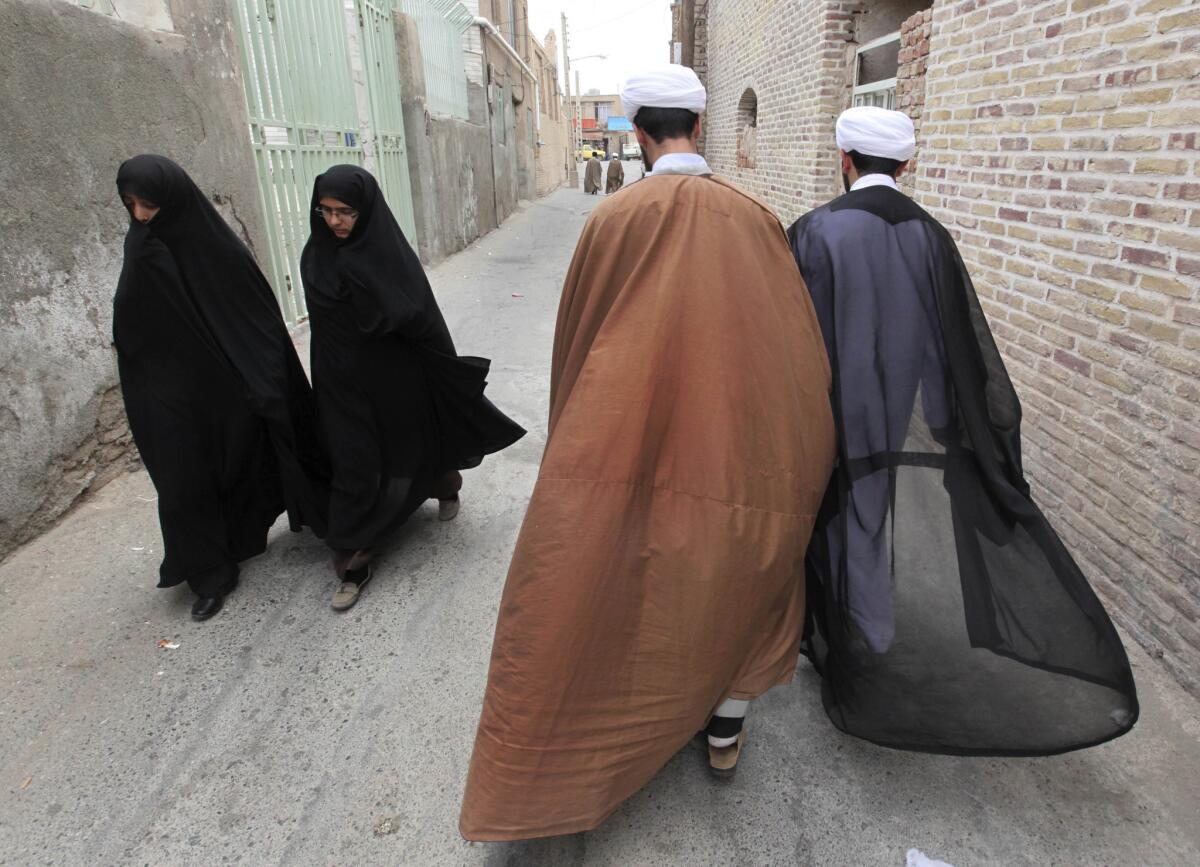Women can’t be president in Iran, senior cleric says

TEHRAN — Iran’s next president will not be a woman.
No surprise there, but a senior religious figure, Ayatollah Mohammad Yazdi, made it official in comments Wednesday to a group of clerics and theology students, according to the conservative Mehr news agency.
The ayatollah shot down the argument that Iran’s constitution is sufficiently vague on the point to open the door to a female president of the Islamic Republic.
“Women cannot be president,” the ayatollah declared.
More than 30 women are among the almost 700 Iranians who have signed up as potential presidential candidates in June 14 balloting. But the actual number of candidates will be reduced significantly through a strict vetting process, based on criteria such as loyalty to the Islamic Republic, religious standing and experience.
Yazdi, a hard-line cleric from the holy city of Qom, sits on the powerful Guardian Council, a panel of 12 clerics and jurists that vets office-seekers. He is one of six top clergymen on the panel appointed by Iran’s supreme leader, Ayatollah Ali Khamenei. Parliament names the other six based on nominations from the judiciary branch.
The council is expected to narrow the field to about 10 presidential candidates (all men) by Tuesday. That will leave about three weeks for official campaigning.
Since the 1979 Islamic Revolution, women activists have endeavored to enshrine gender equality in Iran’s constitution, with mixed results.
Women do hold other elected posts in Iran and have more rights than in some other Islamic nations, notably Saudi Arabia, where women have campaigned for the right to vote and to drive. Iranian women also represent more than 60% of the university population.
In a 2012 report, the World Economic forum ranked Iran 127th out of 135 nations graded according to their success at reducing gender disparities. Topping the list were Iceland, Finland, Norway and Sweden. Iran was listed above Mali, Morocco, Ivory Coast, Saudi Arabia, Syria, Chad, Pakistan and, at number 135, Yemen.
The United States was ranked 22nd, just behind Canada and ahead of Mozambique.
ALSO:
Bombings at Pakistan mosques kill 10
Russia defends weapons shipments to Syria
Hunger strike, Yemeni dilemma could spur Guantanamo closure plans
Times Staff Writer Patrick J. McDonnell in Beirut contributed to this report.
More to Read
Sign up for Essential California
The most important California stories and recommendations in your inbox every morning.
You may occasionally receive promotional content from the Los Angeles Times.










